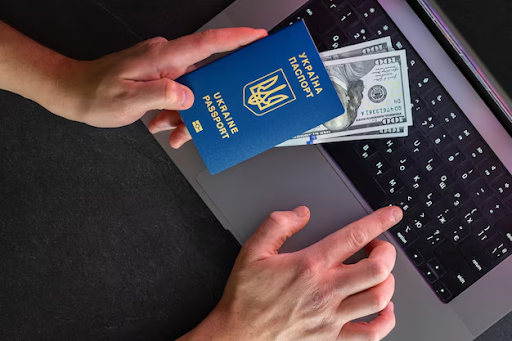Notifications


Dubai, known for its thriving economy, strategic location, and business-friendly policies, offers an attractive opportunity for foreign investors. Among the various routes to obtain residency, the Dubai Investor Visa stands out as a valuable option for individuals seeking long-term settlement and business opportunities. This guide walks you through the key steps, requirements, and benefits associated with the Dubai Investor Visa.
The Dubai Investor Investor Visa UAE is a residency visa tailored for entrepreneurs, business owners, and investors who wish to live and work in the UAE. Dubai has been a hotspot for investment due to its tax incentives, world-class infrastructure, and cosmopolitan lifestyle. The UAE government has introduced several visa schemes to attract foreign talent and investors, making it easier for individuals to invest in the country.
Obtaining an Investor Visa grants you the ability to live, work, and invest in Dubai for an extended period. The visa is particularly popular with those who are looking to set up or invest in a business within Dubai’s flourishing economic sectors, including real estate, tourism, and finance.
Before diving into the details of the application process, it’s important to highlight the key benefits of obtaining an Investor Visa in Dubai:
Long-Term Residency: The Investor Visa typically offers a residency period ranging from 3 to 5 years, depending on the nature of the investment. In certain cases, it may even extend to a 10-year visa.
Business Opportunities: Holders of the Investor Visa have the freedom to start and manage their businesses, participate in various sectors, and access Dubai's numerous free zones that offer additional incentives.
Tax Incentives: Dubai provides a favorable tax environment with no personal income tax and a relatively low corporate tax rate, making it an ideal destination for investors.
Access to World-Class Infrastructure: Dubai’s advanced infrastructure, including state-of-the-art transportation, telecommunications, and healthcare facilities, provides a solid foundation for business growth and personal convenience.
Family Residency: Investors can sponsor their families for residency, allowing them to live, work, and study in the UAE.
Gateway to Other GCC Countries: As the UAE has agreements with other Gulf Cooperation Council (GCC) countries, holding a Dubai Investor Visa opens doors for business and travel across the region.
Understanding the process involved in securing an Investor Visa is crucial for potential applicants. The procedure may vary slightly depending on the investment type or business setup but generally follows a similar structure. Offshore Bank Account Here’s a breakdown of the key steps:
Before applying for the Investor Visa, it is essential to understand the eligibility requirements. Generally, applicants need to meet the following criteria:
Minimum Investment Amount: You must meet a certain minimum investment requirement in the UAE. This amount varies depending on whether you are investing in a business, real estate, or other sectors.
Legal Structure: If you are setting up a business, you need to ensure that your investment falls within the legal framework of the UAE. This includes registering with the relevant authorities and acquiring the appropriate permits.
Financial Stability: You must provide evidence of your financial stability, which may include bank statements, proof of income, or the value of your existing investments.
Good Conduct: Applicants are expected to have a clean criminal record and demonstrate good conduct.
The next step is to decide what kind of investment you want to make. The Dubai Investor Visa allows for various types of investments, each with its requirements:
Business Investment: One of the most popular ways to obtain an Investor Visa is by starting or investing in a business in Dubai. This could involve opening a new company, buying shares in an existing company, or investing in a sector eligible for foreign ownership.
Real Estate Investment: Purchasing property in Dubai can also lead to an Investor Visa, provided the investment meets the required financial threshold. This is an especially attractive option for those looking for long-term residency and an asset that can appreciate over time.
Other Investments: The UAE also encourages investments in sectors such as technology, healthcare, and renewable energy. Depending on the investment type, different visa schemes and benefits may apply.
Once you’ve decided on the investment type, the next step is to register your business or property and apply for the Investor Visa. If you're setting up a company, you will need to follow these sub-steps:
Company Registration: Register your business with the relevant authorities, such as the Department of Economic Development (DED) in Dubai. You will need to submit the necessary documents and comply with all licensing and legal requirements.
Apply for the Investor Visa: After your business is registered or your investment is in place, you can apply for the Investor Visa through the UAE government’s immigration system. This step may involve submitting various documents such as your passport, proof of investment, and health clearance.
For real estate investors, the process will involve submitting proof of property ownership and meeting the minimum investment value set by the government.
Once your visa application is approved, you will need to undergo a medical examination. The medical check includes a series of tests for communicable diseases and ensures that you meet the health standards for residency. Upon passing the medical check, you will also need to apply for an Emirates ID, which serves as your official identification in the UAE.
After completing all the necessary steps, your application will be reviewed and, if everything is in order, your Investor Visa will be issued. This allows you to live and work in the UAE legally. The visa may also grant you the right to sponsor your family members for residency.

